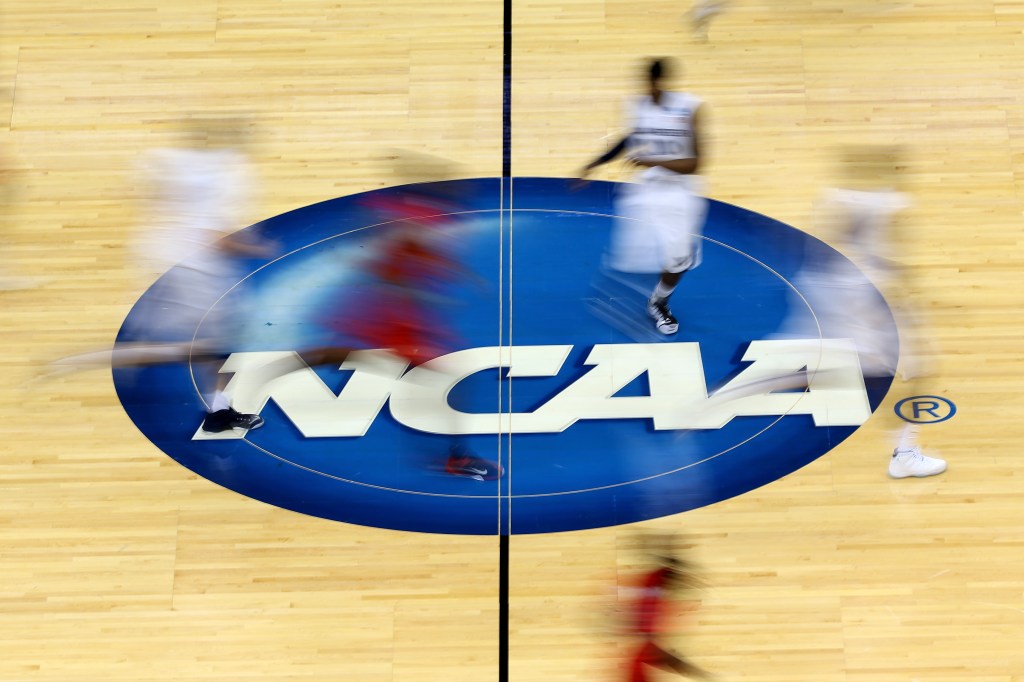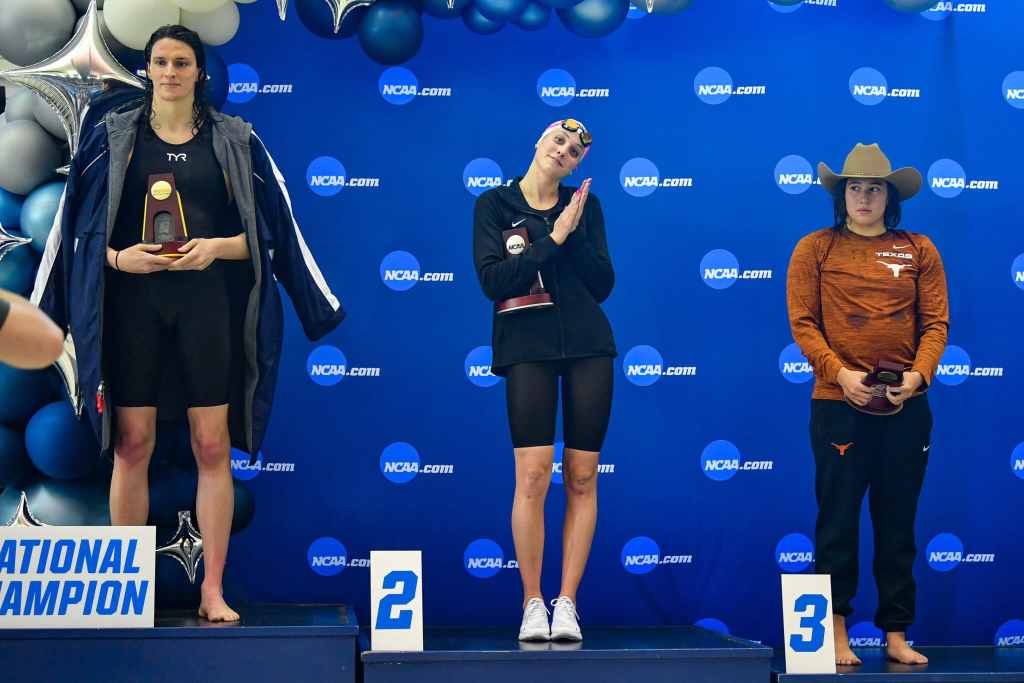NCAA to bar trans women from female competition after Trump’s order

Trans women will no longer be able to compete in female sports following an update to NCAA policies (Patrick Smith/Getty Images)
Trans women will no longer be able to compete in female sports following an update to NCAA policies (Patrick Smith/Getty Images)
The National Collegiate Athletic Association (NCAA) has announced female competition will henceforth be limited to those assigned female at birth following Donald Trump’s trans sports ban.
The NCAA, which regulates student athletics in the United States, made the announcement on Thursday (6 February) one day after US president Trump signed an executive order enacting a ban on trans women and girls taking part in female sports.
This is despite the fact that studies have found that trans women athletes have no advantage in elite sport.
Since Trump’s return to the White House on 20 January he has signed a raft of executive orders attacking the trans community, including declaring that the official policy of the United States is that there are “only two sexes”, banning trans people from serving in the military and restricting access to gender-affirming healthcare for trans people under the age 19.
He has also eliminated diversity, equity and inclusion (DEI) programmes across the government and in the armed services.

The NCAA policy update is immediate, stipulating that a student-athlete assigned male at birth – such as trans women and non-binary folks – cannot compete with for an NCAA women’s team. However, person assigned male at birth may practice with an NCAA women’s team and “receive all other benefits applicable to student-athletes.”
If a student-athlete who is assigned female at birth begins hormone therapy, such as a trans man who starts taking testosterone, the NCAA says they can no longer compete on the women’s team. If they do compete, the team will no longer be eligible for NCAA women’s championships and instead be subject to NCAA mixed-team legislation.
Like those assigned male at birth, they too can keep on practicing with the women’s team if they wish and “receive all other benefits applicable to student-athletes”.
In terms of men’s sports, the NCAA states regardless of sex assigned at birth or gender identity a student-athlete can participate in NCAA men’s sports, including practice and competition, as long as they meet all NCAA requirements.
Sports with mixed men’s and women’s NCAA championships, such as rifle, are exempt from the policy change.
NCAA statement on transgender athletes
“The NCAA is an organisation made up of 1,100 colleges and universities in all 50 states that collectively enroll more than 530,000 student-athletes. We strongly believe that clear, consistent, and uniform eligibility standards would best serve today’s student-athletes instead of a patchwork of conflicting state laws and court decisions,” NCAA President Charlie Baker said. “To that end, President Trump’s order provides a clear, national standard.
Baker continued: “The updated policy combined with these resources follows through on the NCAA’s constitutional commitment to deliver intercollegiate athletics competition and to protect, support and enhance the mental and physical health of student-athletes.
“This national standard brings much needed clarity as we modernise college sports for today’s student-athletes.”

The NCAA has previously come under fire for its inclusion policies, notably following Lia Thomas’s victory in 2022.
Thomas, a trans woman who at the time was a swimmer with the University of Pennsylvania’s women’s team, became the first trans athlete to win an NCAA swimming championship when she finished first in the 500-yard freestyle.
Thomas’ victory came amid heightened political focus on trans athletes, with several states moving to ban trans women participating the female sports and politicians and former sports stars – such as Caitlyn Jenner – specifically attacking Thomas and other trans athletes.
As Thomas swam inside the McAuley Aquatic Center at Georgia Tech, a group of 10 anti-trans protesters stood outside, handing out pamphlets and holding signs which read: “Save Women’s Sports.”
Also during the NCAA championship, Thomas tied for fifth place with University of Kentucky’s Riley Gaines in 200-yard NCAA freestyle. Gaines has gone on to be a prolific anti-trans campaigner.

